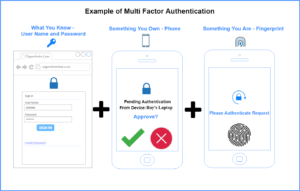In an ever-evolving technological world, a growing number of professions, especially real estate, are transitioning from human interaction and communication to algorithms and artificial intelligence. Being a Florida notary is no exception.
Background:
Important legal documents typically require notarization. But what exactly does that mean? Well, in simple terms, a notarized document is a document that has been certified by a notary, who is an official in charge of verifying the identities of everybody signing the agreement, witnessing the signatures, and then marking the document with a notary stamp. Currently, whenever the need for document notarization arises, interested parties have to physically present themselves in front of a notary. This way the notary is able to verify first-hand the people executing those documents.
With technology, fairly-new hybrid versions of notarization have begun to appear in numerous states, including Florida. Instead of being burdened with copious amounts of paperwork, people interested in having an agreement notarized could use electronic means to sign documents, albeit, still in the physical presence of a notary who would proceed to electronically stamp the deed.
Florida Remote Online Notary Law
Florida has joined twenty other states in authorizing the use of remote online notarization (RON). The bill, which was a key initiative of the Florida Land Title Association, was signed into law on by Governor DeSantis and will become effective January 1, 2020.
RON is a process whereby a signer and a notary public use audio and video communication to notarize the signer’s electronic signature on electronic documents. In states where RON is permitted, personal appearance requirements are met by this interactive audio-video conference. RON will allow for notarizations to occur in both commercial and residential real estate, especially in Florida where often times international clients cannot be physically present at real estate closings.
Caveats and Concerns
Companies offering webcam notarizations use a method known as knowledge-based authentication (KBA) to verify signers’ identities. This method asks individuals a series of questions about their personal backgrounds based on information culled from various credit bureau databases, which can prove to be time-consuming and tedious. Critics of RON claim that even with the security measures in place, which admittedly slow down the process of notarization to some extent, there have been many data breaches of sources used by KBA systems over the last few years. In fact, the 2017 Equifax data breach, which exposed personal data of over 140 million customers, is a glaring example of the magnitude and severity of KBA security measures.
Aside from the personal identification concerns, these data breaches, even if they are rare, have raised doubts and caused people to advocate for stricter, more stringent security protocols. Multifactor authentication (MFA), which requires various identifiers, including producing a username and password, approving a transaction from something you own (e.g. – phone, laptop, etc.), and presenting a personal trait (e.g. – fingerprint, face-scan, etc.), is among the proposed alternatives for KBAs.

Looking Forward
It will be interesting to see how fast RON becomes the norm and is adopted by lending institutions. However, regardless of an individual’s stance on e-notarization and remote on-line notarization (RON), one thing is clear: technological advancements in the notary industry will have long reaching effects on real estate transactions.
From the Trenches,
Roy Oppenheim
Oppenheim Law | Real Estate Attorneys
2500 Weston Rd, Suite 404
Fort Lauderdale, FL 33331
954-384-6114
https://www.oppenheimlaw.com/
Originally posted at South Florida Law Blog: Duly Noted: Florida’s New Notary Law https://southfloridalawblog.com/duly-noted-floridas-new-notary-law/
















